5 oct 2015
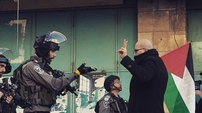
History proves that the Palestinian people will be free.
What is occurring now in occupied Palestine – the West Bank, Jerusalem, Gaza Strip – reiterates the equation of the “dumb” political mind behind the racial and cultural status of Israel's colonial control. This equation, grounded in the idea that the “Arabs” understand only the language of force, adds that what is not understood with force will certainly be understood with yet more force.
Israel's colonial system of occupation failed to learn profound lessons of history. It inhabits a “Rambo” culture, in which it can handily defeat armies and destroy states. Its army and security services are invincible. The true problem with this culture is that Israel's entire political system is infected, and Israel's collective mind believes it is absolutely protected and secure. Out of nowhere an illusion of absolutely security is conjured up, and security is viewed as an absolute.
Yet this enormous imbalance of power has not succeeded in defeating the Palestinian will for freedom and independence. It is true that resistance is not a straight line, but it has not been halted.
The dilemma with which the Israeli colonial occupation does not wish to grapple is that here we have not a classic military balance between two armies, but a people and the occupation army. Never in history has a people desiring freedom and willing to make the necessary sacrifices did not achieve it. Just look at Syria, Egypt, Iraq, Algeria, Yemen, Libya, Vietnam, Cuba, India, China, Korea, what to mention the liberation movements in Latin America, Africa and Asia. The Palestinian people are not and will not be an exception to this history.
This is what will happen in Palestine. The Palestinian people will be free. There is no other option outside of this historical logic.
Stupidity dominates the mind and behaviour of the colonial power, which arrogantly believes that its strength is eternal. This is a pivotal and decisive force concerning the policies and practices of Israel's colonial occupation.
Yet Palestinian political forces are haunted to some extent by a culture of weakness and defeat, which encourages them to pursue options contrary to the spirit of the Palestinian people, its history and future.
Accordingly, the Palestinian national forces of all stripes must re-evaluate and re-establish their roles and strategies so that the substrate in any national strategy is the Palestinian people, their rights and resistance. Bets should not be made on international relations and negotiations. This means that the base of the Palestinian triangle must be the people and their resistance. Diplomatic relations must support this base, not be its substitute.
Now is a historic moment, appropriate for the return of the Palestinian national movement's strategic repositioning within the Arab and global alliance, which is based in Syria, Yemen and Iraq to destroy the American hegemony and liquidate the reactionary oil culture and policies. We must move in harmony with the rhythm of the Palestinian people. This is the sole possible response to the occupation, which did not stop for one minute with its killings, detentions and destruction and its refusal to recognise any of the rights of the Palestinian people.
What is occurring now in occupied Palestine – the West Bank, Jerusalem, Gaza Strip – reiterates the equation of the “dumb” political mind behind the racial and cultural status of Israel's colonial control. This equation, grounded in the idea that the “Arabs” understand only the language of force, adds that what is not understood with force will certainly be understood with yet more force.
Israel's colonial system of occupation failed to learn profound lessons of history. It inhabits a “Rambo” culture, in which it can handily defeat armies and destroy states. Its army and security services are invincible. The true problem with this culture is that Israel's entire political system is infected, and Israel's collective mind believes it is absolutely protected and secure. Out of nowhere an illusion of absolutely security is conjured up, and security is viewed as an absolute.
Yet this enormous imbalance of power has not succeeded in defeating the Palestinian will for freedom and independence. It is true that resistance is not a straight line, but it has not been halted.
The dilemma with which the Israeli colonial occupation does not wish to grapple is that here we have not a classic military balance between two armies, but a people and the occupation army. Never in history has a people desiring freedom and willing to make the necessary sacrifices did not achieve it. Just look at Syria, Egypt, Iraq, Algeria, Yemen, Libya, Vietnam, Cuba, India, China, Korea, what to mention the liberation movements in Latin America, Africa and Asia. The Palestinian people are not and will not be an exception to this history.
This is what will happen in Palestine. The Palestinian people will be free. There is no other option outside of this historical logic.
Stupidity dominates the mind and behaviour of the colonial power, which arrogantly believes that its strength is eternal. This is a pivotal and decisive force concerning the policies and practices of Israel's colonial occupation.
Yet Palestinian political forces are haunted to some extent by a culture of weakness and defeat, which encourages them to pursue options contrary to the spirit of the Palestinian people, its history and future.
Accordingly, the Palestinian national forces of all stripes must re-evaluate and re-establish their roles and strategies so that the substrate in any national strategy is the Palestinian people, their rights and resistance. Bets should not be made on international relations and negotiations. This means that the base of the Palestinian triangle must be the people and their resistance. Diplomatic relations must support this base, not be its substitute.
Now is a historic moment, appropriate for the return of the Palestinian national movement's strategic repositioning within the Arab and global alliance, which is based in Syria, Yemen and Iraq to destroy the American hegemony and liquidate the reactionary oil culture and policies. We must move in harmony with the rhythm of the Palestinian people. This is the sole possible response to the occupation, which did not stop for one minute with its killings, detentions and destruction and its refusal to recognise any of the rights of the Palestinian people.
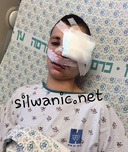
Doctors at Hadassah Ein Kerem hospital enucleated the left eye of the 18-year old Mohammad Yousef Burqan after he was shot with a rubber bullet on Sunday in the neighborhood of Al-Thori in Silwan.
Yousef Burqan, the child’s father, explained to Wadi Hilweh Information Center that his son underwent a surgery on Sunday night at 9 p.m. and lasted until 5 a.m. in which the left eye was enucleated and two platinum implants were done to the bones of his face because of fractures he suffered in the skull, nose, teeth and upper jaw; wounds were also stitched.
He added that the forces are still detaining his son in which cuffs are placed on his hands and legs despite his medical condition; it is prohibited to visit him.
Burqan added that his son was injured with a rubber bullet in the neighborhood of Al-Thori in Silwan on Sunday night and was severely beaten during the arrest and while being transported to the hospital in an ambulance by the Israeli forces despite the injury.
The father pointed out that his son was injured 8 months ago in his leg after he was shot by an Israeli settler while tending the sheep in the neighborhood of Wad Yasool in Silwan. Also, two years ago he was assaulted by settlers in Sheikh Jarrah and was severely beaten by batons.
Burqan had just finished studying for his “Bagroot” exams and was getting ready to enroll in Sakhnin College.
Al-Dameer organization lawyer, Mohammad Mahmoud, visited Burqan at the hospital and explained that he is in stable medical conditions after undergoing the surgery. He also said that Burqan remains under arrest and a court session will be held for him on Monday night.
Yousef Burqan, the child’s father, explained to Wadi Hilweh Information Center that his son underwent a surgery on Sunday night at 9 p.m. and lasted until 5 a.m. in which the left eye was enucleated and two platinum implants were done to the bones of his face because of fractures he suffered in the skull, nose, teeth and upper jaw; wounds were also stitched.
He added that the forces are still detaining his son in which cuffs are placed on his hands and legs despite his medical condition; it is prohibited to visit him.
Burqan added that his son was injured with a rubber bullet in the neighborhood of Al-Thori in Silwan on Sunday night and was severely beaten during the arrest and while being transported to the hospital in an ambulance by the Israeli forces despite the injury.
The father pointed out that his son was injured 8 months ago in his leg after he was shot by an Israeli settler while tending the sheep in the neighborhood of Wad Yasool in Silwan. Also, two years ago he was assaulted by settlers in Sheikh Jarrah and was severely beaten by batons.
Burqan had just finished studying for his “Bagroot” exams and was getting ready to enroll in Sakhnin College.
Al-Dameer organization lawyer, Mohammad Mahmoud, visited Burqan at the hospital and explained that he is in stable medical conditions after undergoing the surgery. He also said that Burqan remains under arrest and a court session will be held for him on Monday night.
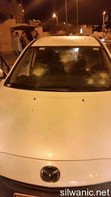
The occupation forces fired sound grenades and rubber bullets towards the locals’ vehicles in Beit Hanina after they left the funeral tent of the Martyr Fadi Alloun in Beit Hanina north of Jerusalem.
Wadi Hilweh Information Center was informed that among those hit was the vehicle of Adnan Gheith, secretary of Fateh Movement.
Gheith explained that the occupation forces randomly fired sound grenades and rubber bullets towards a group of cars near the tent which led to damaging the windows of the vehicles but no human injuries.
Wadi Hilweh Information Center was informed that among those hit was the vehicle of Adnan Gheith, secretary of Fateh Movement.
Gheith explained that the occupation forces randomly fired sound grenades and rubber bullets towards a group of cars near the tent which led to damaging the windows of the vehicles but no human injuries.
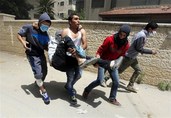
Four Palestinian youths were killed by Israeli fire within three days, while nearly 500 others have been injured in clashes with Israeli soldiers and settlers across the occupied West Bank and Jerusalem since Saturday, the Palestinian Red Crescent said on Monday.
At least 41 Palestinians have been injured Monday during the reported clashes, raising the number of injured to 499 Palestinians within three days.
On Monday, five Palestinians had been shot with live rounds, while five others were injured by rubber-coated steel bullets.
The sources said that some 26 Palestinians had suffered excessive tear gas inhalation, while three others were injured when they were physically assaulted.
During the past three days, Israeli forces have killed four Palestinians, including a 13-year-old boy, in fierce clashes that have swept across the occupied West Bank and Jerusalem since Saturday.
The Palestinian Red Crescent explained in a statement issued late on Monday that 41 Palestinians had been shot with live rounds, while at least 134 were hit with rubber-coated steel bullets.
297 others suffered excessive tear gas inhalation, while 10 others were subjected to severe beatings by Israeli soldiers or settlers, the statement added.
The Palestinian Red Cross on Sunday declared a state of emergency across the occupied Palestinian territory, and said it was putting all its staff, teams and volunteers on standby.
Tensions had been steadily mounting in recent weeks across West Bank and specially in occupied Jerusalem due to Israeli restrictions on Palestinians seeking to enter the Al-Aqsa Mosque compound and Israeli settlers’ provocative and deadly attacks on Palestinian citizens and properties.
At least 41 Palestinians have been injured Monday during the reported clashes, raising the number of injured to 499 Palestinians within three days.
On Monday, five Palestinians had been shot with live rounds, while five others were injured by rubber-coated steel bullets.
The sources said that some 26 Palestinians had suffered excessive tear gas inhalation, while three others were injured when they were physically assaulted.
During the past three days, Israeli forces have killed four Palestinians, including a 13-year-old boy, in fierce clashes that have swept across the occupied West Bank and Jerusalem since Saturday.
The Palestinian Red Crescent explained in a statement issued late on Monday that 41 Palestinians had been shot with live rounds, while at least 134 were hit with rubber-coated steel bullets.
297 others suffered excessive tear gas inhalation, while 10 others were subjected to severe beatings by Israeli soldiers or settlers, the statement added.
The Palestinian Red Cross on Sunday declared a state of emergency across the occupied Palestinian territory, and said it was putting all its staff, teams and volunteers on standby.
Tensions had been steadily mounting in recent weeks across West Bank and specially in occupied Jerusalem due to Israeli restrictions on Palestinians seeking to enter the Al-Aqsa Mosque compound and Israeli settlers’ provocative and deadly attacks on Palestinian citizens and properties.
|
|
A RIOT has reportedly broken out on the main street of Bethlehem city, as Palestinians protest the killing of 13-year-old schoolboy Abdul Rahman Obeidallah by Israeli snipers, in Aida refugee camp.
Hundreds of angry protesters chanting “Allah Akhbar”, a traditional cry against injustice, blocked the road towards Rachel’s tomb after the boy, who was around 5ft 4″ tall, was shot by Israeli snipers whilst still wearing his school uniform. As the demonstration arrived near the 300 Israeli military checkpoint annexed to the wall north of Bethlehem, IOF immediately fired teargas and sound grenades to repress it. However, intense clashes are still continuing inside the camp. |
Photographs from the scene show him being carried away from the violence still wearing his school uniform and backpack.
Another schoolboy was wounded in the shooting, still in surgery at the Beit Jala hospital. He was shot during a second day of violence at Aida refugee camp, in Bethlehem in the West Bank.
Another schoolboy was reportedly shot in the head. Still to be identified, he is currently undergoing emergency surgery at the government run hospital in Beit Jala, around 1km away.
The pair were rushed to the hospital around 1.45 pm but Abdul-Rahman was pronounced dead shortly afterwards.
One witness, who accompanied the casualty to hospital, said shortly before the news of the boy’s death was known: ” I was walking back to my home in the camp when it happened. They got hit by real bullets, live ammunition.
“Their family is here, there are a lot of people. It’s just tense, we’re waiting to hear.”
One local, who did not wish to be named, said: “He was doing nothing. He was just looking. He had come home from school and his mother had sent him to the shop.
“He was just standing, looking. And they shot him right here, in the chest. It opened right up, huge, and he died in the hospital. His mother and his father, they are going mad”.
Violent clashes broke out near Bethlehem, on Sunday afternoon in response to the shooting of Palestinian student Fadi Alloun (19) in Jerusalem on Saturday.
Israeli forces fired tear gas and rubber bullets at around 100 protesters at Aida refugee camp at around 4pm, and clashes continued into the night.
Four Palestinian youngsters have been shot dead by IOF within the past two days alone, and about 200 people have been reported injured at locations all over the West Bank.
New injuries reported during clashes in Bethlehem, O.J
Israeli forces shot at least four youths with live rounds during clashes that broke out at the northern entrance to Bethlehem in occupied West Bank.
The clashes broke out when dozens of local youths took into streets in protest against the killing of the 13-year-old child Abdulrahman Mustafa by an Israeli sniper fire at the entrance to Aida refugee camp Monday afternoon.
Four protesters were shot and injured in their feet with live ammunition during the clashes, while another young man was hit in his head by a rubber bullet. Dozens others suffered tear gas inhalation.
Medical sources said that Abdulrahman Shadi Mustafa, 13, was fatally wounded in the chest during confrontations between angry Palestinian youths and the heavily-armed Israeli soldiers in Aida refugee camp.
They said that Israeli snipers shot him in the heart and that he was carried to Beit Jala hospital in very bad condition, adding that he breathed his last soon after arriving at the hospital.
Palestinian national and Islamic forces have called for general strike in Bethlehem on Monday and Tuesday out of respect for a 13-year-old boy who was shot dead by Israeli forces.
Meanwhile, violent and large-scale clashes broke out in different parts of occupied Jerusalem mainly in Silwan and Shufat towns and Qalandia and Shufat refugee camp checkpoints.
The Palestinian medical sources affirmed that three youths suffered rubber bullet injuries while five others suffered breathing difficulties after inhaling tear gas bombs during the clashes that erupted in Ras al-Amoud neighborhood in Silwan town.
A 10-year-old boy was arrested during the clashes, local sources told PIC reporter.
Along the same line, a young man was seriously injured after being receiving a live bullet in his foot, while two others suffered rubber bullet injuries at Qalandia checkpoint.
Similar clashes broke out in Shufat town in protest against the killing of one of its local youths earlier Sunday by Israeli fire. No injuries were reported during the clashes.
Clashes have swept across the occupied West Bank and Jerusalem as Israeli forces and settlers carried out deadly attacks against Palestinians, killing at least three youths and injuring more than 400 within two days.
Another schoolboy was wounded in the shooting, still in surgery at the Beit Jala hospital. He was shot during a second day of violence at Aida refugee camp, in Bethlehem in the West Bank.
Another schoolboy was reportedly shot in the head. Still to be identified, he is currently undergoing emergency surgery at the government run hospital in Beit Jala, around 1km away.
The pair were rushed to the hospital around 1.45 pm but Abdul-Rahman was pronounced dead shortly afterwards.
One witness, who accompanied the casualty to hospital, said shortly before the news of the boy’s death was known: ” I was walking back to my home in the camp when it happened. They got hit by real bullets, live ammunition.
“Their family is here, there are a lot of people. It’s just tense, we’re waiting to hear.”
One local, who did not wish to be named, said: “He was doing nothing. He was just looking. He had come home from school and his mother had sent him to the shop.
“He was just standing, looking. And they shot him right here, in the chest. It opened right up, huge, and he died in the hospital. His mother and his father, they are going mad”.
Violent clashes broke out near Bethlehem, on Sunday afternoon in response to the shooting of Palestinian student Fadi Alloun (19) in Jerusalem on Saturday.
Israeli forces fired tear gas and rubber bullets at around 100 protesters at Aida refugee camp at around 4pm, and clashes continued into the night.
Four Palestinian youngsters have been shot dead by IOF within the past two days alone, and about 200 people have been reported injured at locations all over the West Bank.
New injuries reported during clashes in Bethlehem, O.J
Israeli forces shot at least four youths with live rounds during clashes that broke out at the northern entrance to Bethlehem in occupied West Bank.
The clashes broke out when dozens of local youths took into streets in protest against the killing of the 13-year-old child Abdulrahman Mustafa by an Israeli sniper fire at the entrance to Aida refugee camp Monday afternoon.
Four protesters were shot and injured in their feet with live ammunition during the clashes, while another young man was hit in his head by a rubber bullet. Dozens others suffered tear gas inhalation.
Medical sources said that Abdulrahman Shadi Mustafa, 13, was fatally wounded in the chest during confrontations between angry Palestinian youths and the heavily-armed Israeli soldiers in Aida refugee camp.
They said that Israeli snipers shot him in the heart and that he was carried to Beit Jala hospital in very bad condition, adding that he breathed his last soon after arriving at the hospital.
Palestinian national and Islamic forces have called for general strike in Bethlehem on Monday and Tuesday out of respect for a 13-year-old boy who was shot dead by Israeli forces.
Meanwhile, violent and large-scale clashes broke out in different parts of occupied Jerusalem mainly in Silwan and Shufat towns and Qalandia and Shufat refugee camp checkpoints.
The Palestinian medical sources affirmed that three youths suffered rubber bullet injuries while five others suffered breathing difficulties after inhaling tear gas bombs during the clashes that erupted in Ras al-Amoud neighborhood in Silwan town.
A 10-year-old boy was arrested during the clashes, local sources told PIC reporter.
Along the same line, a young man was seriously injured after being receiving a live bullet in his foot, while two others suffered rubber bullet injuries at Qalandia checkpoint.
Similar clashes broke out in Shufat town in protest against the killing of one of its local youths earlier Sunday by Israeli fire. No injuries were reported during the clashes.
Clashes have swept across the occupied West Bank and Jerusalem as Israeli forces and settlers carried out deadly attacks against Palestinians, killing at least three youths and injuring more than 400 within two days.
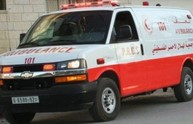
In light of settlers’ flare-up of violence across the West Bank, including Jerusalem, the Palestinian Red Crescent raised the alert status across the West Bank to third degree, declaring a ‘State of Emergency.
The Palestinian Red Crescent activated its central operations room at its headquarter in al-Bireh/Ramallah as well as mobilized all volunteers and teams to provide relief to Palestinians against the backdrop of escalated recent settlers’ violence against Palestinians and their properties.
Israeli settlers late Saturday and Sunday – following two separate killing incidents of Israelis by Palestinian suspects - went on a revenge rampage, under the protection of Israeli army forces , against Palestinian civilians and their properties, leading to violent clashes across the West Bank districts, which left dozens of injuries and suffocation cases among Palestinian locals.
According to WAFA, Red Crescent said it has documented 14 Israeli settlers and forces’ assaults against its staff members within the past 72 hours across the West Bank, including Jerusalem.
It said Israeli forces attacked one of its vehicles in front of al-Quds university in Abu Dis town to the east of Jerusalem, firing rubber-coated steel bullets and tear gas canisters at it.
On October 2nd, 2015, Israeli soldiers attacked one of its ambulances in the East Jerusalem neighborhood of al-Issawiya and detained one of the injured locals who was being treated inside the ambulance.
Meanwhile in Nablus, the Red Crescent said settlers prevented paramedics from performing their humanitarian duties and smashed their ambulance's windscreen. A day later, five paramedics were beaten up by Israeli police in the Jerusalem area, while other police forces attacked two ambulances in the Old City of Jerusalem.
During the same day, Israeli army forces brutally beat up one of its ambulances’ crews in al-Bireh/Ramallah. Two paramedics were injured in the attack, while one of the injured locals, who was receiving first-aid treatment, was nabbed from inside the ambulance. Forces further fired rubber-coated bullets and tear gas canisters at the ambulance.
The Red Crescent stressed that such measures constitute a blatant violation of the resolutions of international humanitarian law, particularly the Fourth Geneva conventions relative to the protection of civilians at time of armed conflicts.
Article 63 of the Fourth Geneva conventions states, “All Contracting Parties shall endeavour to permit the transit and transport, free of charge, of such relief consignments on their way to occupied territories. Recognized National Red Cross (Red Crescent, Red Lion and Sun) Societies shall be able to pursue their activities in accordance with Red Cross principles, as defined by the International Red Cross Conferences. Other relief societies shall be permitted to continue their humanitarian activities under similar conditions.”
“The Occupying Power may not require any changes in the personnel or structure of these societies, which would prejudice the aforesaid activities.”
The Red Crescent Society called on the international community, and the High Contracting Parties to the Geneva Conventions, to shoulder their responsibilities and take the necessary measures to ensure Israel’s compliance with provisions of international humanitarian law, and to halt all Israeli attacks committed against the Palestinian people.
The Palestinian Red Crescent activated its central operations room at its headquarter in al-Bireh/Ramallah as well as mobilized all volunteers and teams to provide relief to Palestinians against the backdrop of escalated recent settlers’ violence against Palestinians and their properties.
Israeli settlers late Saturday and Sunday – following two separate killing incidents of Israelis by Palestinian suspects - went on a revenge rampage, under the protection of Israeli army forces , against Palestinian civilians and their properties, leading to violent clashes across the West Bank districts, which left dozens of injuries and suffocation cases among Palestinian locals.
According to WAFA, Red Crescent said it has documented 14 Israeli settlers and forces’ assaults against its staff members within the past 72 hours across the West Bank, including Jerusalem.
It said Israeli forces attacked one of its vehicles in front of al-Quds university in Abu Dis town to the east of Jerusalem, firing rubber-coated steel bullets and tear gas canisters at it.
On October 2nd, 2015, Israeli soldiers attacked one of its ambulances in the East Jerusalem neighborhood of al-Issawiya and detained one of the injured locals who was being treated inside the ambulance.
Meanwhile in Nablus, the Red Crescent said settlers prevented paramedics from performing their humanitarian duties and smashed their ambulance's windscreen. A day later, five paramedics were beaten up by Israeli police in the Jerusalem area, while other police forces attacked two ambulances in the Old City of Jerusalem.
During the same day, Israeli army forces brutally beat up one of its ambulances’ crews in al-Bireh/Ramallah. Two paramedics were injured in the attack, while one of the injured locals, who was receiving first-aid treatment, was nabbed from inside the ambulance. Forces further fired rubber-coated bullets and tear gas canisters at the ambulance.
The Red Crescent stressed that such measures constitute a blatant violation of the resolutions of international humanitarian law, particularly the Fourth Geneva conventions relative to the protection of civilians at time of armed conflicts.
Article 63 of the Fourth Geneva conventions states, “All Contracting Parties shall endeavour to permit the transit and transport, free of charge, of such relief consignments on their way to occupied territories. Recognized National Red Cross (Red Crescent, Red Lion and Sun) Societies shall be able to pursue their activities in accordance with Red Cross principles, as defined by the International Red Cross Conferences. Other relief societies shall be permitted to continue their humanitarian activities under similar conditions.”
“The Occupying Power may not require any changes in the personnel or structure of these societies, which would prejudice the aforesaid activities.”
The Red Crescent Society called on the international community, and the High Contracting Parties to the Geneva Conventions, to shoulder their responsibilities and take the necessary measures to ensure Israel’s compliance with provisions of international humanitarian law, and to halt all Israeli attacks committed against the Palestinian people.
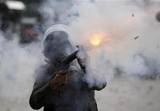
Israeli soldiers invaded, earlier Monday, several Palestinian communities in the occupied West Bank and Jerusalem, violently searched homes and property, and kidnapped nine Palestinians. The army attacked and injured a woman in her home, while many residents suffered the effects of tear gas inhalation.
The Palestinian News & Info Agency (WAFA) has reported that the soldiers invaded the home of Badea' Shafiq Snober, 47, in Yitma village, south of the northern West Bank city of Nablus, and kidnapped him, after violently searching his property, causing damage.
The soldiers also attacked Badea' wife, Eman 'Othman, 45, as she tried to stop them from ransacking her home and kidnapping her husband, causing various cuts and bruises.
Dozens of army vehicles also invaded the towns of Huwwara, Beit Forik, Osarin and Qabalan, searched and ransacked several homes, and withdrew without conducting any arrests.
In addition, soldiers kidnapped Yahya Mohammad Hajj Mohammad, from Nablus city, after storming his home and searching it, and repeatedly struck him with their batons, and iron bars, while their dogs mauled him, causing cuts and bruises to several parts of his body.
Another Palestinian, identified as Zeid Younis, was kidnapped in his village Iraq at-Tayeh, after the soldiers stormed his store, deliberately damaged his property and goods, and stole sums of cash.
Furthermore, soldiers kidnapped Qusai Zaher Barghouth, from Baqat al-Hatab village, after stopping him on a roadblock near Jeet village, east of the northern West Bank city of Qalqilia.
In occupied Jerusalem, soldiers kidnapped Ahmad Daoud Nasser, 17, from Ras al-'Amoud neighborhood in Silwan town, south of the Al-Aqsa Mosque.
The Wadi Hilweh Information Center in Silwan (Silwanic) said clashes took place in the neighborhood, and that the soldiers fired dozens of gas bombs, concussion grenades and rubber-coated steel bullets.
Similar clashes took place near the Shu'fat refugee camp, especially near the military roadblock installed close to the main entrance of the camp.
The soldiers also kidnapped Hussein Edkeidik and Mohammad Sob-Laban in Wad al-Jouz neighborhood, in Jerusalem, and invaded Dar Abu Jamal neighborhood in Jabal al-Mokabber town.
In addition, soldiers invaded the Palestine Technical Academy, in al-'Arroub north of the southern West Bank city of Hebron, after surrounding it, and prevented the students from entering or leaving it.
The soldiers then kidnapped a student, identified as 'Amro Jamil Ahmad al-'Allami, 20 years of age.
Mohammad Awad, spokesperson of the Popular Committee against the Wall and Settlements in Beit Ummar, said the soldiers prevented him from documenting their invasion, and detained him.
He added that the soldiers held him and al-'Allami for three hours at the Etzion military base, north of Hebron, and released him but kept al-'Allami.
In related news, soldiers fired gas bombs at dozens of residents, and homes, in the al-'Arroub refugee camp, north of Hebron.
The Red Crescent Society in Hebron said many residents received treatment for the effects of tear gas inhalation.
The Palestinian News & Info Agency (WAFA) has reported that the soldiers invaded the home of Badea' Shafiq Snober, 47, in Yitma village, south of the northern West Bank city of Nablus, and kidnapped him, after violently searching his property, causing damage.
The soldiers also attacked Badea' wife, Eman 'Othman, 45, as she tried to stop them from ransacking her home and kidnapping her husband, causing various cuts and bruises.
Dozens of army vehicles also invaded the towns of Huwwara, Beit Forik, Osarin and Qabalan, searched and ransacked several homes, and withdrew without conducting any arrests.
In addition, soldiers kidnapped Yahya Mohammad Hajj Mohammad, from Nablus city, after storming his home and searching it, and repeatedly struck him with their batons, and iron bars, while their dogs mauled him, causing cuts and bruises to several parts of his body.
Another Palestinian, identified as Zeid Younis, was kidnapped in his village Iraq at-Tayeh, after the soldiers stormed his store, deliberately damaged his property and goods, and stole sums of cash.
Furthermore, soldiers kidnapped Qusai Zaher Barghouth, from Baqat al-Hatab village, after stopping him on a roadblock near Jeet village, east of the northern West Bank city of Qalqilia.
In occupied Jerusalem, soldiers kidnapped Ahmad Daoud Nasser, 17, from Ras al-'Amoud neighborhood in Silwan town, south of the Al-Aqsa Mosque.
The Wadi Hilweh Information Center in Silwan (Silwanic) said clashes took place in the neighborhood, and that the soldiers fired dozens of gas bombs, concussion grenades and rubber-coated steel bullets.
Similar clashes took place near the Shu'fat refugee camp, especially near the military roadblock installed close to the main entrance of the camp.
The soldiers also kidnapped Hussein Edkeidik and Mohammad Sob-Laban in Wad al-Jouz neighborhood, in Jerusalem, and invaded Dar Abu Jamal neighborhood in Jabal al-Mokabber town.
In addition, soldiers invaded the Palestine Technical Academy, in al-'Arroub north of the southern West Bank city of Hebron, after surrounding it, and prevented the students from entering or leaving it.
The soldiers then kidnapped a student, identified as 'Amro Jamil Ahmad al-'Allami, 20 years of age.
Mohammad Awad, spokesperson of the Popular Committee against the Wall and Settlements in Beit Ummar, said the soldiers prevented him from documenting their invasion, and detained him.
He added that the soldiers held him and al-'Allami for three hours at the Etzion military base, north of Hebron, and released him but kept al-'Allami.
In related news, soldiers fired gas bombs at dozens of residents, and homes, in the al-'Arroub refugee camp, north of Hebron.
The Red Crescent Society in Hebron said many residents received treatment for the effects of tear gas inhalation.
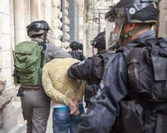
Israeli soldiers invaded, on Monday at dawn, two villages in the northern West Bank city of Jenin, and clashed with local youths, causing many Palestinians to suffer the effects of tear gas inhalation. Soldiers also kidnapped a Palestinian near Bethlehem.
Media sources in Jenin said several Israeli military vehicles invaded the villages of Barta'a and Rommana, in Jenin, and clashed with scores of local youths.
The soldiers fired several live rounds, rubber-coated steel bullets and gas bombs, causing many Palestinians, including families in their homes, to suffer the effects of tear gas inhalation.
The soldiers also invaded several olive orchards in Rommana, fired flares and live ammunition.
In addition, several Israeli military vehicles invaded Hindaza area, east of the West Bank city of Bethlehem, searched a number of homes, and kidnapped one Palestinian identified as Wael Issa Abu Jalgheef, 24 years of age.
Clashes also took place near Bet El illegal settlement, northeast of Ramallah, and the soldiers fired live rounds, rubber-coated steel bullets and gas bombs.
In related news, a number of Israeli settlers, living in illegal colonies in the northern part of the West Bank, threw rocks at many Palestinian cars near the Huwwara roadblock, south of Nablus, causing damage.
On Sunday at night, a Palestinian was shot with a gas bomb in the face, near Doura town, in the southern West Bank city of Hebron, while many suffered the effects of tear gas inhalation. A young man and a child were injured after Israeli extremists assaulted them.
Also on Sunday, medical sources have reported that more than 160 Palestinians were injured by Israeli army fire, during clashes in various parts of occupied East Jerusalem, and that one of the wounded suffered a serious injury.
Furthermore, Palestinian teen identified as Hotheifa Othman Suleiman, 18 years of age, died of a serious injury he suffered earlier when Israeli soldiers shot him in the abdomen, during clashes that took place near the Nitzani roadblock, west of the northern West Bank city of Tulkarem.
Media sources in Jenin said several Israeli military vehicles invaded the villages of Barta'a and Rommana, in Jenin, and clashed with scores of local youths.
The soldiers fired several live rounds, rubber-coated steel bullets and gas bombs, causing many Palestinians, including families in their homes, to suffer the effects of tear gas inhalation.
The soldiers also invaded several olive orchards in Rommana, fired flares and live ammunition.
In addition, several Israeli military vehicles invaded Hindaza area, east of the West Bank city of Bethlehem, searched a number of homes, and kidnapped one Palestinian identified as Wael Issa Abu Jalgheef, 24 years of age.
Clashes also took place near Bet El illegal settlement, northeast of Ramallah, and the soldiers fired live rounds, rubber-coated steel bullets and gas bombs.
In related news, a number of Israeli settlers, living in illegal colonies in the northern part of the West Bank, threw rocks at many Palestinian cars near the Huwwara roadblock, south of Nablus, causing damage.
On Sunday at night, a Palestinian was shot with a gas bomb in the face, near Doura town, in the southern West Bank city of Hebron, while many suffered the effects of tear gas inhalation. A young man and a child were injured after Israeli extremists assaulted them.
Also on Sunday, medical sources have reported that more than 160 Palestinians were injured by Israeli army fire, during clashes in various parts of occupied East Jerusalem, and that one of the wounded suffered a serious injury.
Furthermore, Palestinian teen identified as Hotheifa Othman Suleiman, 18 years of age, died of a serious injury he suffered earlier when Israeli soldiers shot him in the abdomen, during clashes that took place near the Nitzani roadblock, west of the northern West Bank city of Tulkarem.
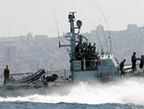
Israeli navy boats attacked, on Monday morning, Palestinian fishing boats near the Gaza shore, and kidnapped two fishers. Earlier at dawn, the Israeli Air Force fired missile into a site run by the Al-Qassam Brigades.
The navy surrounded fishing boats, close to the Gaza City shore, and used loud speakers to order them to jump into the water, and swim towards them.
They then kidnapped two fishers, and boarded one fishing boat before towing it for Ashdod Port.
In addition, Israeli war jets fired a missile into a training site, run by the Al-Qassam Brigades the armed wing of Hamas, causing excessive damage but no injuries.
The Israeli jets also flew over different parts of the coastal region, causing various sonic booms.
The navy surrounded fishing boats, close to the Gaza City shore, and used loud speakers to order them to jump into the water, and swim towards them.
They then kidnapped two fishers, and boarded one fishing boat before towing it for Ashdod Port.
In addition, Israeli war jets fired a missile into a training site, run by the Al-Qassam Brigades the armed wing of Hamas, causing excessive damage but no injuries.
The Israeli jets also flew over different parts of the coastal region, causing various sonic booms.
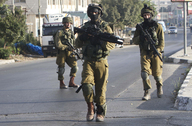
At least a dozen civilians were injured and scores others were treated for the effects of tear gas inhalation, on Monday afternoon, during clashes between invading Israeli troops and Palestinian protesters in Hebron city and the nearby Bethlehem city in southern West Bank.
In Bethlehem, three residents were injured by rubber-coated steel bullets fired by Israeli troops during renewed clashes at the northern entrance of the city near the Israeli wall separating it from Jerusalem.
The clashes started when residents marched to the Israeli wall to protest the killing of Abdul-Rahman Abdullah,13, who was killed in morning protests at the entrance of the nearby Aida refugee camp.
Palestinian political groups announced a general stick in the city on Tuesday and called residents to take part in Abdullah’s funeral on Tuesday at noon.
In the meantime in Hebron city, Israeli soldiers attacked residents in the Al Zawiya Gate area in the old city with tear gas and rubber-coated steel bullets. The Israeli troops attack led to clashes with local youth.
At least nine civilians were injured including a Palestinian journalist Taha Abu Hassan. He was moved to Hebron city hospital after being injured by a rubber-coated steel bullets in his head. Doctors said he sustained moderate injuries.
Also near Hebron, Israeli troops fired tear gas at protesters in Beit Ay’non junction. According to local sources many residents were treated for the effects of tear gas inhalation.
In the noethren West Bank city of Nablus, Israeli settlers attacked Palestinian cars with stones casing damage to a number of cars. No injuries were reported.
Residents said that a group of settlers attacked residents cars near the Howara Israeli military checkpoint at the entrance of Nablus city. Troops did nothing to stop the settlers’ attacks.
According to the Palestinian Red Crescent Society at least 200 Palestinian civilians were injured by Israeli troops gunfire since Sunday during clashes in the West Bank and Jerusalem.
In Bethlehem, three residents were injured by rubber-coated steel bullets fired by Israeli troops during renewed clashes at the northern entrance of the city near the Israeli wall separating it from Jerusalem.
The clashes started when residents marched to the Israeli wall to protest the killing of Abdul-Rahman Abdullah,13, who was killed in morning protests at the entrance of the nearby Aida refugee camp.
Palestinian political groups announced a general stick in the city on Tuesday and called residents to take part in Abdullah’s funeral on Tuesday at noon.
In the meantime in Hebron city, Israeli soldiers attacked residents in the Al Zawiya Gate area in the old city with tear gas and rubber-coated steel bullets. The Israeli troops attack led to clashes with local youth.
At least nine civilians were injured including a Palestinian journalist Taha Abu Hassan. He was moved to Hebron city hospital after being injured by a rubber-coated steel bullets in his head. Doctors said he sustained moderate injuries.
Also near Hebron, Israeli troops fired tear gas at protesters in Beit Ay’non junction. According to local sources many residents were treated for the effects of tear gas inhalation.
In the noethren West Bank city of Nablus, Israeli settlers attacked Palestinian cars with stones casing damage to a number of cars. No injuries were reported.
Residents said that a group of settlers attacked residents cars near the Howara Israeli military checkpoint at the entrance of Nablus city. Troops did nothing to stop the settlers’ attacks.
According to the Palestinian Red Crescent Society at least 200 Palestinian civilians were injured by Israeli troops gunfire since Sunday during clashes in the West Bank and Jerusalem.
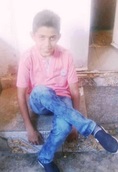
Abdul-Rahman Shadi Khalil Obeidallah 12
Medical sources in Bethlehem said nine Palestinians were injured, Monday, during ongoing clashes that erupted after Israeli soldiers shot and killed a Palestinian child in Aida refugee camp, north of Bethlehem.
At least three Palestinians were initially injured by rubber-coated metal bullets, and later six more Palestinian were also shot.
Dozens suffered the effects of tear gas inhalation, and received treatment by local medics.
Hundreds of Palestinians marched from the Beit Jala Governmental Hospital, heading towards the northern entrance of Bethlehem, near Bilal Bin Rabah Mosque.
As the residents reached the area, soldiers stationed on their concrete fortified military tower, of the Annexation Wall, started firing rubber-coated steel bullets, gas bombs and concussion grenades.
Medical sources said three Palestinians were shot with rubber-coated steel bullets, and several others suffered the effects of tear gas inhalation.
The funeral of the slain child, Abdul-Rahman Shadi Khalil Obeidallah, 12 years of age, will be held, Tuesday, amidst a comprehensive strike declared by all national factions.
Medical sources in Bethlehem said nine Palestinians were injured, Monday, during ongoing clashes that erupted after Israeli soldiers shot and killed a Palestinian child in Aida refugee camp, north of Bethlehem.
At least three Palestinians were initially injured by rubber-coated metal bullets, and later six more Palestinian were also shot.
Dozens suffered the effects of tear gas inhalation, and received treatment by local medics.
Hundreds of Palestinians marched from the Beit Jala Governmental Hospital, heading towards the northern entrance of Bethlehem, near Bilal Bin Rabah Mosque.
As the residents reached the area, soldiers stationed on their concrete fortified military tower, of the Annexation Wall, started firing rubber-coated steel bullets, gas bombs and concussion grenades.
Medical sources said three Palestinians were shot with rubber-coated steel bullets, and several others suffered the effects of tear gas inhalation.
The funeral of the slain child, Abdul-Rahman Shadi Khalil Obeidallah, 12 years of age, will be held, Tuesday, amidst a comprehensive strike declared by all national factions.

The Hamas Movement strongly denounced the recent decisions taken by Israeli premier Benjamin Netanyahu against the Palestinian people and described them as "racist" and "against the international law."
In press remarks on Sunday, Hamas spokesman Sami Abu Zuhri stated that Netanyahu's decrees would not succeed in breaking the Palestinian people's will and steadfastness.
Abu Zuhri stressed that Israel's escalation of its crimes against the Palestinians would make the Palestinians more determined to confront the occupation and its violations.
Recently, Netanyahu had issued a number of edicts aimed at punishing the Palestinians who defend themselves, their people and holy sites against settlers' assaults in Jerusalem and the West Bank and carry out retaliatory attacks.
The edicts gave the security and judicial authorities a free hand to demolish homes of Palestinians, exile and administratively detain them, and carry out on-site executions.
In press remarks on Sunday, Hamas spokesman Sami Abu Zuhri stated that Netanyahu's decrees would not succeed in breaking the Palestinian people's will and steadfastness.
Abu Zuhri stressed that Israel's escalation of its crimes against the Palestinians would make the Palestinians more determined to confront the occupation and its violations.
Recently, Netanyahu had issued a number of edicts aimed at punishing the Palestinians who defend themselves, their people and holy sites against settlers' assaults in Jerusalem and the West Bank and carry out retaliatory attacks.
The edicts gave the security and judicial authorities a free hand to demolish homes of Palestinians, exile and administratively detain them, and carry out on-site executions.
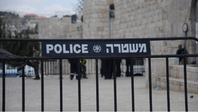
Israel may commence a “second Operation Defensive Shield” against Palestinians in both the West Bank and Jerusalem.
According to Israeli Transport Minister Yisrael Katz (Likud), following weeks of clashes and tensions in these areas.
Israel's March 2002 Operation Defensive Shield was its largest military operation in the West Bank since the 1967 Middle East war. It was during this operation that Israel reasserted military control over the entire West Bank and placed then Palestinian President Yasser Arafat under siege in his headquarters.
Minister Katz, a member of Israel's security cabinet and deputy prime minister, told the settler-affiliated Arutz 7 that the 'second Operation Defensive Shield' would include Jerusalem, and perhaps “a curfew on Jerusalem's Arab neighbourhoods and an end to the privilege of working (in Israel).”
Israeli Prime Minister Benjamin Netanyahu will hold an emergency meeting Sunday with security officials concerning “Palestinian and Islamic terrorism”, promising a “forceful response”.
Violence in the area has spiked in the past two weeks, following an increase in Israeli settler incursions in Jerusalem's al Aqsa mosque compound and Israel's de facto temporal and spatial division of the area between Muslims and Jews.
In the latest round of violence Israeli police officers shot dead a Palestinian teen near Jerusalem's Damascus gate early Sunday morning after he allegedly attempted to stab a 16-year-old Israeli boy.
The Palestinian was identified as 19-year-old Fadi Samir Mustafa Alloun from the East Jerusalem neighbourhood of Issawiya.
Alloun is the second Palestinian to be shot dead after allegedly stabbing Israelis in the Jerusalem's Old City in the past 24 hours.
Two Israelis were killed and two others injured, including a two-year-old infant, in an attack in Jerusalem's Old City carried out Saturday by a Palestinian who was subsequently shot dead, Israeli police and medics said.
Israeli police named the attacker as Mohannad Shafiq Halabi, aged 19, from a village near the West Bank city of Ramallah.
According to Israeli Transport Minister Yisrael Katz (Likud), following weeks of clashes and tensions in these areas.
Israel's March 2002 Operation Defensive Shield was its largest military operation in the West Bank since the 1967 Middle East war. It was during this operation that Israel reasserted military control over the entire West Bank and placed then Palestinian President Yasser Arafat under siege in his headquarters.
Minister Katz, a member of Israel's security cabinet and deputy prime minister, told the settler-affiliated Arutz 7 that the 'second Operation Defensive Shield' would include Jerusalem, and perhaps “a curfew on Jerusalem's Arab neighbourhoods and an end to the privilege of working (in Israel).”
Israeli Prime Minister Benjamin Netanyahu will hold an emergency meeting Sunday with security officials concerning “Palestinian and Islamic terrorism”, promising a “forceful response”.
Violence in the area has spiked in the past two weeks, following an increase in Israeli settler incursions in Jerusalem's al Aqsa mosque compound and Israel's de facto temporal and spatial division of the area between Muslims and Jews.
In the latest round of violence Israeli police officers shot dead a Palestinian teen near Jerusalem's Damascus gate early Sunday morning after he allegedly attempted to stab a 16-year-old Israeli boy.
The Palestinian was identified as 19-year-old Fadi Samir Mustafa Alloun from the East Jerusalem neighbourhood of Issawiya.
Alloun is the second Palestinian to be shot dead after allegedly stabbing Israelis in the Jerusalem's Old City in the past 24 hours.
Two Israelis were killed and two others injured, including a two-year-old infant, in an attack in Jerusalem's Old City carried out Saturday by a Palestinian who was subsequently shot dead, Israeli police and medics said.
Israeli police named the attacker as Mohannad Shafiq Halabi, aged 19, from a village near the West Bank city of Ramallah.

Officials close to the Israeli Prime Minister Benjamin Netanyahu, on Sunday, said that Israel could launch another offensive on the West Bank, to halt what he called “Palestinian violence”, referring to the 2002 Israeli crackdown in the West Bank, in response to the Second Intifada.
According to the Times of Israel, Israeli minister of transportation, Yisrael Katz (Likud), on Sunday, said via Army radio that a large operation could be in the offing and also threatened a closure on Arab neighborhoods in East Jerusalem, which was already implemented now in the Old City of Jerusalem, except for the residents, students, settlers, tourists and businessmen.
“We can impose a closure on the Arab neighborhoods in Jerusalem and stop the privileges of freedom [of movement] to work — these are steps that if faced with security [challenges] we will be forced to used them,” said Katz. “So in Issawiya they will be closed off inside the neighborhood and not work in the most attractive jobs.”
PNN reports that Netanyahu was to meet with the security cabinet Monday night, after the conclusion of the Sukkot holiday, to discuss operations against the West Bank, the Israel Hayom daily reported.
According to the Times of Israel, Israeli minister of transportation, Yisrael Katz (Likud), on Sunday, said via Army radio that a large operation could be in the offing and also threatened a closure on Arab neighborhoods in East Jerusalem, which was already implemented now in the Old City of Jerusalem, except for the residents, students, settlers, tourists and businessmen.
“We can impose a closure on the Arab neighborhoods in Jerusalem and stop the privileges of freedom [of movement] to work — these are steps that if faced with security [challenges] we will be forced to used them,” said Katz. “So in Issawiya they will be closed off inside the neighborhood and not work in the most attractive jobs.”
PNN reports that Netanyahu was to meet with the security cabinet Monday night, after the conclusion of the Sukkot holiday, to discuss operations against the West Bank, the Israel Hayom daily reported.
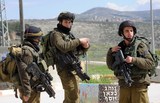
Violent clashes erupted in Jenin and al-Khalil at dawn Monday, which resulted in tear gas suffocation among dozens of Palestinian youths.
In Jenin, the Israeli Occupation Forces (IOF) stormed Yabad, Romana, and Bartaa towns to the north of the city and unleashed heavy fire of tear gas bombs.
Local youths responded by throwing stones and fireworks, forcing the invading soldiers to withdraw from their towns.
The clashes that triggered before dawn prayers lasted till morning hours, and resulted in several tear gas suffocation cases.
In al-Khalil, similar clashes broke out at the entrance of Aroub refugee camp between local youths and Israeli soldiers who were stationed at the nearby military tower.
The confrontation erupted in protest against the continued Israeli closure of the camp’s entrance for the second day in a row. Tear gas canisters were fired during the clashes.
Along the same line, two Palestinians were detained as clashes erupted at dawn today in Hossan town in Bethlehem to the south of the West Bank.
In Jenin, the Israeli Occupation Forces (IOF) stormed Yabad, Romana, and Bartaa towns to the north of the city and unleashed heavy fire of tear gas bombs.
Local youths responded by throwing stones and fireworks, forcing the invading soldiers to withdraw from their towns.
The clashes that triggered before dawn prayers lasted till morning hours, and resulted in several tear gas suffocation cases.
In al-Khalil, similar clashes broke out at the entrance of Aroub refugee camp between local youths and Israeli soldiers who were stationed at the nearby military tower.
The confrontation erupted in protest against the continued Israeli closure of the camp’s entrance for the second day in a row. Tear gas canisters were fired during the clashes.
Along the same line, two Palestinians were detained as clashes erupted at dawn today in Hossan town in Bethlehem to the south of the West Bank.
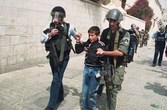
The Israeli occupation forces (IOF) on Sunday evening kidnapped four Palestinian civilians, including two minors, from Occupied Jerusalem on allegations of stone-hurling.
Israeli news outlets said the IOF kidnapped two Palestinian children aged 15 and 16 on charges of throwing stones on occupation officers stationed in Occupied Jerusalem.
Meanwhile, violent clashes rocked Jerusalem’s northern neighborhood of Shu’afat.
The Israeli occupation army attacked the unarmed Palestinian protesters in the area with random spates of tear gas canisters, stun grenades, and rubber bullets.
The attack culminated in the abduction of a number of Palestinian protesters.
Clashes further burst out in Silwan town, where the IOF targeted Palestinian family homes and civilians with tear gas grenades and rubber bullets.
A horde of Israeli vandals reportedly attacked Palestinian passers-by and cars parked in al-Basatin neighborhood with rubbers bullet rounds in the presence of the occupation troops.
Youngster Mohammed Yussef Berkan sustained critical head and eye wounds after he was shot by the IOF during the clashes that rocked Silwan’s al-Thawri neighborhood.
Injured Mohammed was kidnapped by the IOF shortly afterwards.
Another Palestinian youth reportedly sustained head injuries after he was shot by the IOF in al-Tur neighborhood.
According to the Red Crescent organization the number of Palestinians wounded in Jerusalem clashes with the IOF on Sunday has hit at least 160.
Israeli news outlets said the IOF kidnapped two Palestinian children aged 15 and 16 on charges of throwing stones on occupation officers stationed in Occupied Jerusalem.
Meanwhile, violent clashes rocked Jerusalem’s northern neighborhood of Shu’afat.
The Israeli occupation army attacked the unarmed Palestinian protesters in the area with random spates of tear gas canisters, stun grenades, and rubber bullets.
The attack culminated in the abduction of a number of Palestinian protesters.
Clashes further burst out in Silwan town, where the IOF targeted Palestinian family homes and civilians with tear gas grenades and rubber bullets.
A horde of Israeli vandals reportedly attacked Palestinian passers-by and cars parked in al-Basatin neighborhood with rubbers bullet rounds in the presence of the occupation troops.
Youngster Mohammed Yussef Berkan sustained critical head and eye wounds after he was shot by the IOF during the clashes that rocked Silwan’s al-Thawri neighborhood.
Injured Mohammed was kidnapped by the IOF shortly afterwards.
Another Palestinian youth reportedly sustained head injuries after he was shot by the IOF in al-Tur neighborhood.
According to the Red Crescent organization the number of Palestinians wounded in Jerusalem clashes with the IOF on Sunday has hit at least 160.
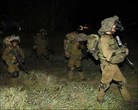
The Israeli occupation army claimed overnight Sunday that it has received notifications on projected anti-occupation attacks in the southern West Bank province of al-Khalil and Occupied Jerusalem.
Israeli news outlets quoted the occupation army as claiming that a state of alert has been declared after threats were received on anti-occupation operations in al-Khalil city and Occupied Jerusalem.
PIC’s expert in the Palestinian-Israeli affairs said reports on simmering unrest among the occupation army is meant to set the stage for preplanned Israeli crimes.
Following a four-hour-long discussion at the headquarters of the war ministry overnight Sunday, the Israeli premier, Benjamin Netanyahu said an agreement was reached on escalating demolitions of Palestinian civilians homes, expediting deportation orders against Jerusalem’s anti-occupation activists, and stepping up administrative detentions.
He further threatened that more occupation troops will be deployed in and around the West Bank and Occupied Jerusalem to quell further anti-Israel activism.
Israeli news outlets quoted the occupation army as claiming that a state of alert has been declared after threats were received on anti-occupation operations in al-Khalil city and Occupied Jerusalem.
PIC’s expert in the Palestinian-Israeli affairs said reports on simmering unrest among the occupation army is meant to set the stage for preplanned Israeli crimes.
Following a four-hour-long discussion at the headquarters of the war ministry overnight Sunday, the Israeli premier, Benjamin Netanyahu said an agreement was reached on escalating demolitions of Palestinian civilians homes, expediting deportation orders against Jerusalem’s anti-occupation activists, and stepping up administrative detentions.
He further threatened that more occupation troops will be deployed in and around the West Bank and Occupied Jerusalem to quell further anti-Israel activism.

An Israeli warplane at dawn Monday bombed a Palestinian resistance post in the Gaza Strip, with no reported casualties.
Local sources said the airstrike targeted a training site belonging to al-Qassam Brigades of Hamas on the southern side of Gaza City.
The sources added that a strong blast was heard throughout the city and billows of smoke were rising from the site following the aerial attack.
Local sources said the airstrike targeted a training site belonging to al-Qassam Brigades of Hamas on the southern side of Gaza City.
The sources added that a strong blast was heard throughout the city and billows of smoke were rising from the site following the aerial attack.
